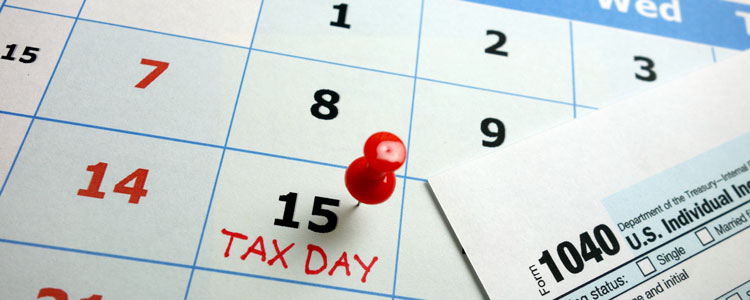Tax time is just around the corner. Here are some steps you can take to minimize your personal income tax bill.
Maximize your retirement contributions.
- 401(k) contributions limit is $19,500 with a catch-up contribution of $6000 for those 50 or over – max of $25,500.
- Traditional IRA plans of $6,000, with a catch-up contribution of $1,000 for those 50 and over – max $7000. For those covered by a workplace retirement plan such as a 401(k), there are phase outs in which you can deduct it. Please check with your advisor to determine the maximum amount in your situation. Contributions due by April 15, 2020.
- If you are self-employed you may be able to contribution up to 20% of your net income to a SEP IRA or Keogh plan. Contribution has to be made prior to filing your return or due date. Or consider a solo 401(k).
Fund a Health savings account. If you have a high deductible insurance policy that qualifies, a business owner can fund an HSA account for $3550 single or $7100 for a family policy. There is also a $1000 catch up for those over 55. For a 2019 tax benefit contribute before you file your return or by April 15, 2020.
Maximize Your Health Insurance tax credits. If you receive tax credits to reduce your health care insurance premiums watch your income. If it exceeds $62,300 for married folks you will be denied the tax credit and get charged the full premium, which could be close to $30,000.
Capital gains. Review your capital gains and capital losses to minimize your overall taxes.
- If you have capital losses over $3000, consider generating capital gains to utilize the loss. You can only take a $3000 loss; the rest will be carried forward.
- Donate appreciated stock. You can avoid the capital gain income on appreciated stock if you donate the stock directly to the nonprofit (501c3). You receive the fair market value for the donation and avoid the capital gain income.
- Consider directly donating a part of your required minimum distributions from your retirement account directly to a nonprofit. This can reduce your taxable income if you are over 70 1⁄2, taking RMD’s and give to charities. You avoid reporting the income.
Like-kind exchanges. If you plan to sell investment real estate, consider doing a like kind exchange. By purchasing a higher cost property, you can roll the gain into the new property and defer the gain until you sell the new property. Know the rules before you do this.
Itemized deductions in most situations will not provide a tax benefit since the standard deduction increased to $12,000 and $24,000.
- Be sure to pay at least $2,500 of your home real estate taxes by December 31 for the $300 WI school tax credit.
- Consider paying your donations every other year, so that you can exceed the standard deduction.
Qualified business income deduction. If you report pass-thru business income from a sole proprietor, partnership, s corporation or rental income and your income exceeds $150,000 if filing single or $300,000 if married it may definitely be worth the investment to do tax planning.
These suggestions are for discussion purposes. Majority of the items mentioned have very specific requirements. The requirements can be complicated and may yield different results based on your unique situation.
To learn more about your options – please CONTACT us for a “Tax Strategy/Tax planning” meeting to understand the full implication of the items mentioned above.
